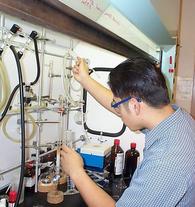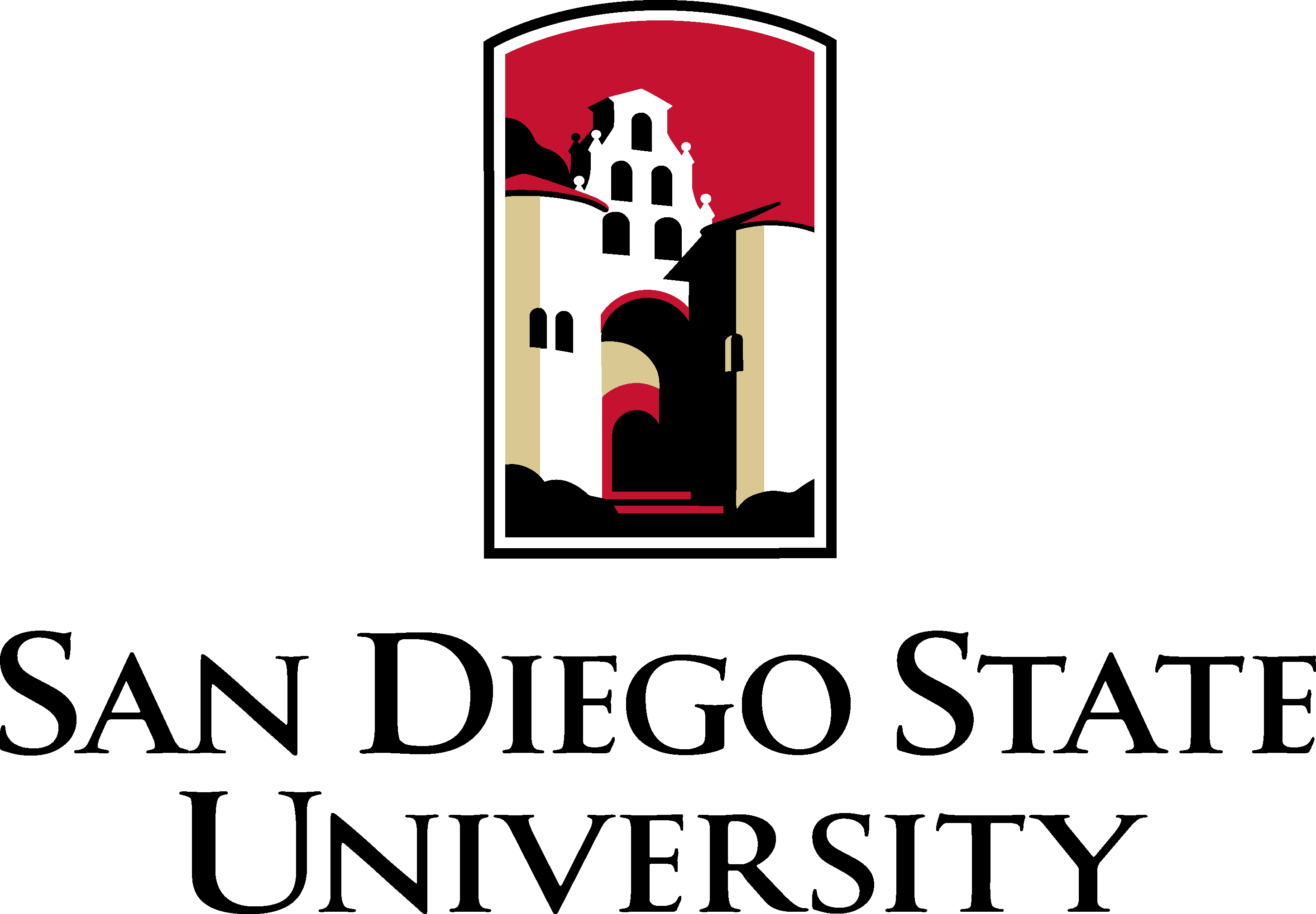“ I started my first research lab experience with a nauseating doubtful feeling, but soon enough all that changed.”
Jason Dinoso, former undergraduate chemist

Undergraduate Research
Undergraduate students majoring in chemistry are encouraged to participate in laboratory research. Research is a requirement in our B.S. degree programs.
Undergraduate Research Credit
Students (whether majoring in chemistry or not) are able to receive course credit for research under the following 1-3 unit courses:
Chem 297: Introduction to Chemical Research
Available to first-year and sophomore students who wish to start laboratory research early. Although this course is unlikely to fulfill degree requirements, students who are considering a career in research sometimes find a research laboratory in the Department to which they would enjoy contributing their skills for a period of 2-3 years. Starting laboratory work early in one's undergraduate program can be the deciding factor in completing successful, professional-quality research projects.
Chem 497: Undergraduate Research
Available to students who have completed Chem 231 and 251. This course is intended for upper division students who wish to pursue laboratory research on a credit/no credit basis, with no required final report. This course can contribute to elective units in chemistry required by the various degree programs.
Chem 498: Senior Project
Available to students who have completed three one-year courses in chemistry. This course is required for all B.S. chemistry majors, and is open to all other students who have the prerequisite coursework and wish to receive letter-grade credit for their research. A final report is required at the conclusion of the course. This is the capstone of the B.S. degree program -- laboratory research on a project of current interest in chemistry, allowing the student to see firsthand the application of the concepts described in the lecture courses. For students interested in pursuing post-graduate degrees, this is also the basis for sterling and authoritative letters of recommendation from professors with whom you work, because they are able to assess your technical and communication skills, professionalism, and dedication from a far better vantage point than is possible in the classroom.
Students may take a maximum of 6 units of Chem 297, 6 units of Chem 497, and 3 units of Chem 498. Although only one credit of Chem 498 is required for the B.S., we strongly encourage students to plan to work in a lab for at least one year, because the longer investment has a correspondingly greater payoff in research results, learning, and satisfaction.
To enroll in any of these courses, find a chemistry faculty member whose research interests you. Contact them by phone or email and ask if they can supervise your undergraduate research. Please understand that laboratory research is demanding of resources, and we cannot guarantee that all faculty are available to supervise your research at any given time. If the faculty member has resources available, then you can discuss what possible projects would suit both your interests best. When you agree on a project and a level of commitment (how much you will be able to work in the lab, and how many units you will receive), see the receptionist in the department office (CSL-325) for the research course sign-up form.
Selected Undergraduate Research Project Titles
These are some of the recent and/or available topics for research in the department.
- Hybrid antibiotics: Chemical modifications of Streptogramine Type Antibiotics Mikael Bergdahl, advisor.
- Synthesis and Evaluation of Chiral Ligands for Asymmetric Catalysis Using Organozinc and Organocopper Chemistry Mikael Bergdahl, advisor.
- Synthesis of a Molecular Fragment of Azaspirene; a Novel Angiogenesis inhibitor Mikael Bergdahl, advisor.
- Novel Total Synthesis of Prostaglandins Utilizing New Organocopper and Organosilane Chemistry Mikael Bergdahl, advisor.
- Synthesis of New H-bonding Ligands for Bioinorganic Chemistry; Carl Carrano, advisor.
- De Novo Design of Zinc Alkyl Transfer Enzymes; Carl Carrano, advisor.
- Iron Transport in Mircoorganisms; Carl Carrano, advisor.
- Volatile Organic Biomarker Compounds in Breath; Dale Chatfield, advisor.
- Forensic Applications of Biomarkers Compounds; Dale Chatfield, advisor.
- Radical Infrared Spectroscopy; Andrew Cooksy, advisor.
- Computational Studies of High-Spin, Carbon-Chain Free Radicals; Andrew Cooksy, advisor.
- Synthesis of Potential Catalysts with Pyrazole Ligands; Douglas Grotjahn, advisor.
- Synthesis and catalytic properties of heterocyclic complexes; Douglas Grotjahn, advisor.
- Computer-guided early-stage drug development; David Hecht, advisor.
- Protein Engineering: de Novo Docking; John Love, advisor.
- Potential Pharmaceuticals in Plants; Robert Metzger, advisor.
- Oligosaccharide Synthesis; Robert Metzger, advisor.
- Natural Products of Central America; Robert Metzger, advisor.
- Multi-Photon Laser Analytical Spectroscopy; William Tong, advisor.
- Nonlinear Laser Wave-Mixing Methods; William Tong, advisor.
- Laser-Based Bioanalytical Methods; William Tong, advisor.
